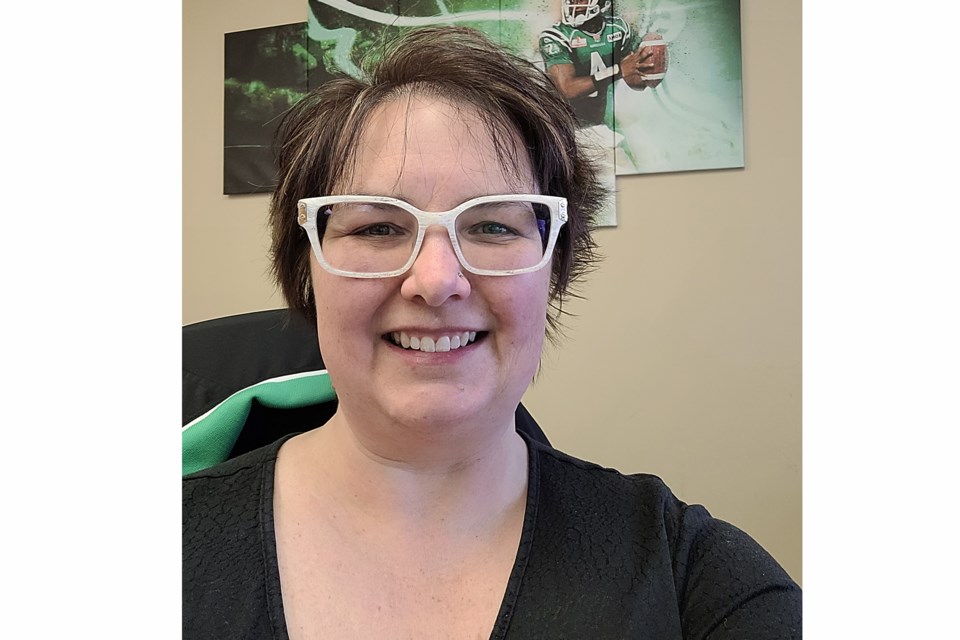LAKELAND - It’s been just over a year since Terri Hampson was diagnosed with Stage 2 invasive ductal carcinoma, a type of breast cancer.
In that time, she’s been through plenty of emotions, has faced challenges, leaned on others for support, and she has learned some valuable life lessons along the way.
Hampson, a former Town of Elk Point councillor, first received her diagnosis in February of 2021, while she was serving on council.
Just a month later, she would undergo lumpectomy surgery. And in May, she started radiation. From June 2021 until 2026, she will continue to treat the disease by taking Tamoxifen, a form of hormonal therapy, in an effort to stop the cancer from accessing the hormones it needs to multiply and grow.
While recovering from surgery itself is taxing, Hampson also had to battle through an infection.
“Infection is gross, scary and sets you back in the timeline of overall treatment,” says Hampson.
Following her diagnosis, doctors recommended genetic testing, which she proceeded with so she could help her daughter potentially make important health decisions.
She admits that she didn’t check her breasts monthly, but she does remember that “something seemed off,” and realized she hadn’t been to the doctor in a while. So, she booked an appointment. Her doctor was “amazing, calm and assured me that whatever the outcome, we would see it through,” recalls Hampson.
Up until seeing her doctor, she had been told she was too young for a mammogram.
While she did have a family history of cancer, she admits she thought she had “dodged the bullet,” since many of her relatives had developed cancer at an even younger age.
Going through the steps
Going through the 20 sessions of radiation made for a tough summer, explains Hampson, looking back on 2021.
“I can tell you, not everything you experience is in the books.” Her summer included races to find cool spots, along with tubs of lotion to ward cracks and peeling.
“Literally, you are burning from the inside out and the sun is not your friend during this time,” she describes.
But through her treatments, Hampson says she felt in control. Every step was explained, and she was always given the choice of whether or not to proceed.
"My body and I had to 100 per cent agree. I felt no pressure to accept or deny any part of treatment.”
A side effect she’s noticed from taking the Tamoxifen, however, is that she now finds herself forgetful, and she must write everything on a calendar “or it will just not happen. It is very frustrating.”
Support and advice
Of course, Hampson leaned on those closest to her for support throughout her diagnosis and treatments.
Her husband was her biggest cheerleader and support. And her daughter, who happened to be in her fourth year of post-secondary as a Registered Nurse, was also able to support her along the way.
“I am blessed with family and many friends who were supportive in every step,” says Hampson.
“My friend Teresa was a plethora of information as she unfortunately had the same diagnosis nine years previous, so she took the panic calls,” and answered many questions that Hampson had.
The local non-profit Haying in the 30’s was also available to Hampson – something she is very thankful for.
When asked what kind of advice she would pass on to others, Hampson simply encourages people to put themselves first.
“Don’t put yourself second. Make your regular appointments. Check yourself regularly. Trust your gut. If something is off, then go get it checked out.”
She would also tell people to do what works from them, when faced with the plethora of information and resources that exist.
Also, be easy on yourself.
“Cut yourself some slack, let yourself be in the various stages of emotions – give them their due but don’t let them control you. "
Thankful
Reflecting on how her diagnosis has changed her perspective on life, one word keeps coming up – “thankful.”
She says she mentally struggled with the idea that she wasn’t “sick enough.” And while it may seem strange, she says it was tough to go to appointments and see people who were “in worse shape.”
But in the end, she’s thankful.
“It makes you thankful for the support of family, friends and work. It makes you thankful for the knowledge of the doctors, nurses and all the workers that interact with you on this journey. It makes you thankful to live in a country where this treatment is provided (with compassion) and (is) available to us.”



